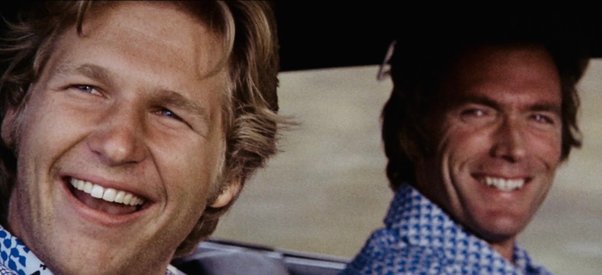Jeff Bridges was NOT in the 1986 war drama Heartbreak Ridge, which Clint Eastwood both starred in and directed.
The only movie that Bridges and Eastwood were in together was the 1974 modern Western crime comedy Thunderbolt and Lightfoot, directed by Michael Cimino (The Deer Hunter).

Eastwood agreed to do the movie only because he wanted to do a road buddy flick, but was disappointed with the movie’s intitial box office tally, and blamed United Artists for its poor promotion of the movie. Eastwood also felt upstaged by the young upstart novice Bridges, who was nominated for a Best Supporting Actor Oscar but lost to Robert De Niro for The Godfather II.

Director Cimino instructed Bridges that it was Bridges’ job to to make Eastwood laugh, both onscreen and off.
As far as their political differences are concerned, Bridges and Eastwood got along well during the movie’s production. Other famous actors had diametrically opposed political viewpoints, but these viewpoints never interfered with their lifelong friendships.

Notably, James Stewart, a staunch Republican conservative, was lifelong friends with Henry Fonda, a liberal Democrat, and they made four films together. Their opposing political affiliations were even added to the script of the Western comedy The Cheyenne Social Club (1970), when Stewart’s character John asks Fonda’s character Harley not to make certain social statements in the movie as it would reflect negatively on the upright John’s solid respectable Republican upbringing.
Harley: There you go thinking like a Republican again. John: Well, you don’t bring up politics while you’re borrowing money, Harley. It ain’t seemly.
Even arch-conservative John Wayne got along with his co-star, the liberal Kirk Douglas during the war drama In Harm’s Way (1965), and the Western The War Wagon (1967).

